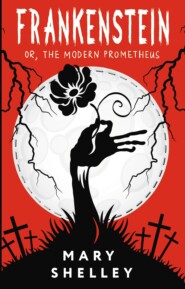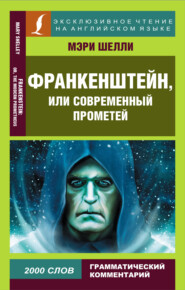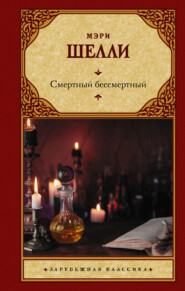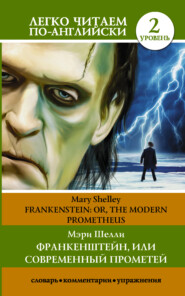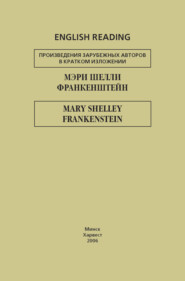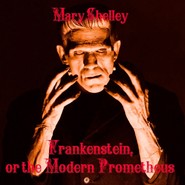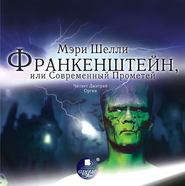По всем вопросам обращайтесь на: info@litportal.ru
(©) 2003-2025.
✖
The Last Man
Настройки чтения
Размер шрифта
Высота строк
Поля
In obedience to my request Perdita detailed the melancholy circumstances that led to this event.
The frank and unsuspicious mind of Adrian, gifted as it was by every natural grace, endowed with transcendant powers of intellect, unblemished by the shadow of defect (unless his dreadless independence of thought was to be construed into one), was devoted, even as a victim to sacrifice, to his love for Evadne. He entrusted to her keeping the treasures of his soul, his aspirations after excellence, and his plans for the improvement of mankind. As manhood dawned upon him, his schemes and theories, far from being changed by personal and prudential motives, acquired new strength from the powers he felt arise within him; and his love for Evadne became deep-rooted, as he each day became more certain that the path he pursued was full of difficulty, and that he must seek his reward, not in the applause or gratitude of his fellow creatures, hardly in the success of his plans, but in the approbation of his own heart, and in her love and sympathy, which was to lighten every toil and recompence every sacrifice.
In solitude, and through many wanderings afar from the haunts of men, he matured his views for the reform of the English government, and the improvement of the people. It would have been well if he had concealed his sentiments, until he had come into possession of the power which would secure their practical development. But he was impatient of the years that must intervene, he was frank of heart and fearless. He gave not only a brief denial to his mother's schemes, but published his intention of using his influence to diminish the power of the aristocracy, to effect a greater equalization of wealth and privilege, and to introduce a perfect system of republican government into England. At first his mother treated his theories as the wild ravings of inexperience. But they were so systematically arranged, and his arguments so well supported, that though still in appearance incredulous, she began to fear him. She tried to reason with him, and finding him inflexible, learned to hate him.
Strange to say, this feeling was infectious. His enthusiasm for good which did not exist; his contempt for the sacredness of authority; his ardour and imprudence were all at the antipodes of the usual routine of life; the worldly feared him; the young and inexperienced did not understand the lofty severity of his moral views, and disliked him as a being different from themselves. Evadne entered but coldly into his systems. She thought he did well to assert his own will, but she wished that will to have been more intelligible to the multitude. She had none of the spirit of a martyr, and did not incline to share the shame and defeat of a fallen patriot. She was aware of the purity of his motives, the generosity of his disposition, his true and ardent attachment to her; and she entertained a great affection for him. He repaid this spirit of kindness with the fondest gratitude, and made her the treasure-house of all his hopes.
At this time Lord Raymond returned from Greece. No two persons could be more opposite than Adrian and he. With all the incongruities of his character, Raymond was emphatically a man of the world. His passions were violent; as these often obtained the mastery over him, he could not always square his conduct to the obvious line of self-interest, but self-gratification at least was the paramount object with him. He looked on the structure of society as but a part of the machinery which supported the web on which his life was traced. The earth was spread out as an highway for him; the heavens built up as a canopy for him.
Adrian felt that he made a part of a great whole. He owned affinity not only with mankind, but all nature was akin to him; the mountains and sky were his friends; the winds of heaven and the offspring of earth his playmates; while he the focus only of this mighty mirror, felt his life mingle with the universe of existence. His soul was sympathy, and dedicated to the worship of beauty and excellence. Adrian and Raymond now came into contact, and a spirit of aversion rose between them. Adrian despised the narrow views of the politician, and Raymond held in supreme contempt the benevolent visions of the philanthropist.
With the coming of Raymond was formed the storm that laid waste at one fell blow the gardens of delight and sheltered paths which Adrian fancied that he had secured to himself, as a refuge from defeat and contumely. Raymond, the deliverer of Greece, the graceful soldier, who bore in his mien a tinge of all that, peculiar to her native clime, Evadne cherished as most dear – Raymond was loved by Evadne. Overpowered by her new sensations, she did not pause to examine them, or to regulate her conduct by any sentiments except the tyrannical one which suddenly usurped the empire of her heart. She yielded to its influence, and the too natural consequence in a mind unattuned to soft emotions was, that the attentions of Adrian became distasteful to her. She grew capricious; her gentle conduct towards him was exchanged for asperity and repulsive coldness. When she perceived the wild or pathetic appeal of his expressive countenance, she would relent, and for a while resume her ancient kindness. But these fluctuations shook to its depths the soul of the sensitive youth; he no longer deemed the world subject to him, because he possessed Evadne's love; he felt in every nerve that the dire storms of the mental universe were about to attack his fragile being, which quivered at the expectation of its advent.
Perdita, who then resided with Evadne, saw the torture that Adrian endured. She loved him as a kind elder brother; a relation to guide, protect, and instruct her, without the too frequent tyranny of parental authority. She adored his virtues, and with mixed contempt and indignation she saw Evadne pile drear sorrow on his head, for the sake of one who hardly marked her. In his solitary despair Adrian would often seek my sister, and in covered terms express his misery, while fortitude and agony divided the throne of his mind. Soon, alas! was one to conquer. Anger made no part of his emotion. With whom should he be angry? Not with Raymond, who was unconscious of the misery he occasioned; not with Evadne, for her his soul wept tears of blood – poor, mistaken girl, slave not tyrant was she, and amidst his own anguish he grieved for her future destiny. Once a writing of his fell into Perdita's hands; it was blotted with tears – well might any blot it with the like —
"Life" – it began thus – "is not the thing romance writers describe it; going through the measures of a dance, and after various evolutions arriving at a conclusion, when the dancers may sit down and repose. While there is life there is action and change. We go on, each thought linked to the one which was its parent, each act to a previous act. No joy or sorrow dies barren of progeny, which for ever generated and generating, weaves the chain that make our life:
Un dia llama a otro dia y ass i llama, y encadena llanto a llanto, y pena a pena.
Truly disappointment is the guardian deity of human life; she sits at the threshold of unborn time, and marshals the events as they come forth. Once my heart sat lightly in my bosom; all the beauty of the world was doubly beautiful, irradiated by the sun-light shed from my own soul. O wherefore are love and ruin for ever joined in this our mortal dream? So that when we make our hearts a lair for that gently seeming beast, its companion enters with it, and pitilessly lays waste what might have been an home and a shelter."
By degrees his health was shaken by his misery, and then his intellect yielded to the same tyranny. His manners grew wild; he was sometimes ferocious, sometimes absorbed in speechless melancholy. Suddenly Evadne quitted London for Paris; he followed, and overtook her when the vessel was about to sail; none knew what passed between them, but Perdita had never seen him since; he lived in seclusion, no one knew where, attended by such persons as his mother selected for that purpose.
CHAPTER IV
THE next day Lord Raymond called at Perdita's cottage, on his way to Windsor Castle. My sister's heightened colour and sparkling eyes half revealed her secret to me. He was perfectly self-possessed; he accosted us both with courtesy, seemed immediately to enter into our feelings, and to make one with us. I scanned his physiognomy, which varied as he spoke, yet was beautiful in every change. The usual expression of his eyes was soft, though at times he could make them even glare with ferocity; his complexion was colourless; and every trait spoke predominate self-will; his smile was pleasing, though disdain too often curled his lips – lips which to female eyes were the very throne of beauty and love. His voice, usually gentle, often startled you by a sharp discordant note, which shewed that his usual low tone was rather the work of study than nature. Thus full of contradictions, unbending yet haughty, gentle yet fierce, tender and again neglectful, he by some strange art found easy entrance to the admiration and affection of women; now caressing and now tyrannizing over them according to his mood, but in every change a despot.
At the present time Raymond evidently wished to appear amiable. Wit, hilarity, and deep observation were mingled in his talk, rendering every sentence that he uttered as a flash of light. He soon conquered my latent distaste; I endeavoured to watch him and Perdita, and to keep in mind every thing I had heard to his disadvantage. But all appeared so ingenuous, and all was so fascinating, that I forgot everything except the pleasure his society afforded me. Under the idea of initiating me in the scene of English politics and society, of which I was soon to become a part, he narrated a number of anecdotes, and sketched many characters; his discourse, rich and varied, flowed on, pervading all my senses with pleasure. But for one thing he would have been completely triumphant. He alluded to Adrian, and spoke of him with that disparagement that the worldly wise always attach to enthusiasm. He perceived the cloud gathering, and tried to dissipate it; but the strength of my feelings would not permit me to pass thus lightly over this sacred subject; so I said emphatically, "Permit me to remark, that I am devotedly attached to the Earl of Windsor; he is my best friend and benefactor. I reverence his goodness, I accord with his opinions, and bitterly lament his present, and I trust temporary, illness. That illness, from its peculiarity, makes it painful to me beyond words to hear him mentioned, unless in terms of respect and affection."
Raymond replied; but there was nothing conciliatory in his reply. I saw that in his heart he despised those dedicated to any but worldly idols. "Every man," he said, "dreams about something, love, honour, and pleasure; you dream of friendship, and devote yourself to a maniac; well, if that be your vocation, doubtless you are in the right to follow it." —
Some reflection seemed to sting him, and the spasm of pain that for a moment convulsed his countenance, checked my indignation. "Happy are dreamers," he continued, "so that they be not awakened! Would I could dream! but 'broad and garish day' is the element in which I live; the dazzling glare of reality inverts the scene for me. Even the ghost of friendship has departed, and love" – He broke off; nor could I guess whether the disdain that curled his lip was directed against the passion, or against himself for being its slave.
This account may be taken as a sample of my intercourse with Lord Raymond. I became intimate with him, and each day afforded me occasion to admire more and more his powerful and versatile talents, that together with his eloquence, which was graceful and witty, and his wealth now immense, caused him to be feared, loved, and hated beyond any other man in England.
My descent, which claimed interest, if not respect, my former connection with Adrian, the favour of the ambassador, whose secretary I had been, and now my intimacy with Lord Raymond, gave me easy access to the fashionable and political circles of England. To my inexperience we at first appeared on the eve of a civil war; each party was violent, acrimonious, and unyielding. Parliament was divided by three factions, aristocrats, democrats, and royalists. After Adrian's declared predeliction to the republican form of government, the latter party had nearly died away, chiefless, guideless; but, when Lord Raymond came forward as its leader, it revived with redoubled force. Some were royalists from prejudice and ancient affection, and there were many moderately inclined who feared alike the capricious tyranny of the popular party, and the unbending despotism of the aristocrats. More than a third of the members ranged themselves under Raymond, and their number was perpetually encreasing. The aristocrats built their hopes on their preponderant wealth and influence; the reformers on the force of the nation itself; the debates were violent, more violent the discourses held by each knot of politicians as they assembled to arrange their measures. Opprobrious epithets were bandied about, resistance even to the death threatened; meetings of the populace disturbed the quiet order of the country; except in war, how could all this end? Even as the destructive flames were ready to break forth, I saw them shrink back; allayed by the absence of the military, by the aversion entertained by every one to any violence, save that of speech, and by the cordial politeness and even friendship of the hostile leaders when they met in private society. I was from a thousand motives induced to attend minutely to the course of events, and watch each turn with intense anxiety.
I could not but perceive that Perdita loved Raymond; methought also that he regarded the fair daughter of Verney with admiration and tenderness. Yet I knew that he was urging forward his marriage with the presumptive heiress of the Earldom of Windsor, with keen expectation of the advantages that would thence accrue to him. All the ex-queen's friends were his friends; no week passed that he did not hold consultations with her at Windsor.
I had never seen the sister of Adrian. I had heard that she was lovely, amiable, and fascinating. Wherefore should I see her? There are times when we have an indefinable sentiment of impending change for better or for worse, to arise from an event; and, be it for better or for worse, we fear the change, and shun the event. For this reason I avoided this high-born damsel. To me she was everything and nothing; her very name mentioned by another made me start and tremble; the endless discussion concerning her union with Lord Raymond was real agony to me. Methought that, Adrian withdrawn from active life, and this beauteous Idris, a victim probably to her mother's ambitious schemes, I ought to come forward to protect her from undue influence, guard her from unhappiness, and secure to her freedom of choice, the right of every human being. Yet how was I to do this? She herself would disdain my interference. Since then I must be an object of indifference or contempt to her, better, far better avoid her, nor expose myself before her and the scornful world to the chance of playing the mad game of a fond, foolish Icarus. One day, several months after my return to England, I quitted London to visit my sister. Her society was my chief solace and delight; and my spirits always rose at the expectation of seeing her. Her conversation was full of pointed remark and discernment; in her pleasant alcove, redolent with sweetest flowers, adorned by magnificent casts, antique vases, and copies of the finest pictures of Raphael, Correggio, and Claude, painted by herself, I fancied myself in a fairy retreat untainted by and inaccessible to the noisy contentions of politicians and the frivolous pursuits of fashion. On this occasion, my sister was not alone; nor could I fail to recognise her companion: it was Idris, the till now unseen object of my mad idolatry.
In what fitting terms of wonder and delight, in what choice expression and soft flow of language, can I usher in the loveliest, wisest, best? How in poor assemblage of words convey the halo of glory that surrounded her, the thousand graces that waited unwearied on her. The first thing that struck you on beholding that charming countenance was its perfect goodness and frankness; candour sat upon her brow, simplicity in her eyes, heavenly benignity in her smile. Her tall slim figure bent gracefully as a poplar to the breezy west, and her gait, goddess-like, was as that of a winged angel new alit from heaven's high floor; the pearly fairness of her complexion was stained by a pure suffusion; her voice resembled the low, subdued tenor of a flute. It is easiest perhaps to describe by contrast. I have detailed the perfections of my sister; and yet she was utterly unlike Idris. Perdita, even where she loved, was reserved and timid; Idris was frank and confiding. The one recoiled to solitude, that she might there entrench herself from disappointment and injury; the other walked forth in open day, believing that none would harm her. Wordsworth has compared a beloved female to two fair objects in nature; but his lines always appeared to me rather a contrast than a similitude:
A violet by a mossy stone
Half hidden from the eye,
Fair as a star when only one
Is shining in the sky.
Such a violet was sweet Perdita, trembling to entrust herself to the very air, cowering from observation, yet betrayed by her excellences; and repaying with a thousand graces the labour of those who sought her in her lonely bye-path. Idris was as the star, set in single splendour in the dim anadem of balmy evening; ready to enlighten and delight the subject world, shielded herself from every taint by her unimagined distance from all that was not like herself akin to heaven.
I found this vision of beauty in Perdita's alcove, in earnest conversation with its inmate. When my sister saw me, she rose, and taking my hand, said, "He is here, even at our wish; this is Lionel, my brother." Idris arose also, and bent on me her eyes of celestial blue, and with grace peculiar said – "You hardly need an introduction; we have a picture, highly valued by my father, which declares at once your name. Verney, you will acknowledge this tie, and as my brother's friend, I feel that I may trust you."
Then, with lids humid with a tear and trembling voice, she continued – "Dear friends, do not think it strange that now, visiting you for the first time, I ask your assistance, and confide my wishes and fears to you. To you alone do I dare speak; I have heard you commended by impartial spectators; you are my brother's friends, therefore you must be mine. What can I say? if you refuse to aid me, I am lost indeed!" She cast up her eyes, while wonder held her auditors mute; then, as if carried away by her feelings, she cried – "My brother! beloved, ill-fated Adrian! how speak of your misfortunes? Doubtless you have both heard the current tale; perhaps believe the slander; but he is not mad! Were an angel from the foot of God's throne to assert it, never, never would I believe it. He is wronged, betrayed, imprisoned – save him! Verney, you must do this; seek him out in whatever part of the island he is immured; find him, rescue him from his persecutors, restore him to himself, to me – on the wide earth I have none to love but only him!"
Her earnest appeal, so sweetly and passionately expressed, filled me with wonder and sympathy; and, when she added, with thrilling voice and look, "Do you consent to undertake this enterprize?" I vowed, with energy and truth, to devote myself in life and death to the restoration and welfare of Adrian. We then conversed on the plan I should pursue, and discussed the probable means of discovering his residence. While we were in earnest discourse, Lord Raymond entered unannounced: I saw Perdita tremble and grow deadly pale, and the cheeks of Idris glow with purest blushes. He must have been astonished at our conclave, disturbed by it I should have thought; but nothing of this appeared; he saluted my companions, and addressed me with a cordial greeting. Idris appeared suspended for a moment, and then with extreme sweetness, she said, "Lord Raymond, I confide in your goodness and honour."
Smiling haughtily, he bent his head, and replied, with emphasis, "Do you indeed confide, Lady Idris?"
She endeavoured to read his thought, and then answered with dignity, "As you please. It is certainly best not to compromise oneself by any concealment."
"Pardon me," he replied, "if I have offended. Whether you trust me or not, rely on my doing my utmost to further your wishes, whatever they may be."
Idris smiled her thanks, and rose to take leave. Lord Raymond requested permission to accompany her to Windsor Castle, to which she consented, and they quitted the cottage together. My sister and I were left – truly like two fools, who fancied that they had obtained a golden treasure, till daylight shewed it to be lead – two silly, luckless flies, who had played in sunbeams and were caught in a spider's web. I leaned against the casement, and watched those two glorious creatures, till they disappeared in the forest-glades; and then I turned. Perdita had not moved; her eyes fixed on the ground, her cheeks pale, her very lips white, motionless and rigid, every feature stamped by woe, she sat. Half frightened, I would have taken her hand; but she shudderingly withdrew it, and strove to collect herself. I entreated her to speak to me: "Not now," she replied, "nor do you speak to me, my dear Lionel; you can say nothing, for you know nothing. I will see you to-morrow; in the meantime, adieu!" She rose, and walked from the room; but pausing at the door, and leaning against it, as if her over-busy thoughts had taken from her the power of supporting herself, she said, "Lord Raymond will probably return. Will you tell him that he must excuse me to-day, for I am not well. I will see him to-morrow if he wishes it, and you also. You had better return to London with him; you can there make the enquiries agreed upon, concerning the Earl of Windsor and visit me again to-morrow, before you proceed on your journey – till then, farewell!"
She spoke falteringly, and concluded with a heavy sigh. I gave my assent to her request; and she left me. I felt as if, from the order of the systematic world, I had plunged into chaos, obscure, contrary, unintelligible. That Raymond should marry Idris was more than ever intolerable; yet my passion, though a giant from its birth, was too strange, wild, and impracticable, for me to feel at once the misery I perceived in Perdita. How should I act? She had not confided in me; I could not demand an explanation from Raymond without the hazard of betraying what was perhaps her most treasured secret. I would obtain the truth from her the following day – in the mean time – But, while I was occupied by multiplying reflections, Lord Raymond returned. He asked for my sister; and I delivered her message. After musing on it for a moment, he asked me if I were about to return to London, and if I would accompany him: I consented. He was full of thought, and remained silent during a considerable part of our ride; at length he said, "I must apologize to you for my abstraction; the truth is, Ryland's motion comes on to-night, and I am considering my reply."
Ryland was the leader of the popular party, a hard-headed man, and in his way eloquent; he had obtained leave to bring in a bill making it treason to endeavour to change the present state of the English government and the standing laws of the republic. This attack was directed against Raymond and his machinations for the restoration of the monarchy.
Raymond asked me if I would accompany him to the House that evening. I remembered my pursuit for intelligence concerning Adrian; and, knowing that my time would be fully occupied, I excused myself. "Nay," said my companion, "I can free you from your present impediment. You are going to make enquiries concerning the Earl of Windsor. I can answer them at once, he is at the Duke of Athol's seat at Dunkeld. On the first approach of his disorder, he travelled about from one place to another; until, arriving at that romantic seclusion he refused to quit it, and we made arrangements with the Duke for his continuing there."
I was hurt by the careless tone with which he conveyed this information, and replied coldly: "I am obliged to you for your intelligence, and will avail myself of it."
"You shall, Verney," said he, "and if you continue of the same mind, I will facilitate your views. But first witness, I beseech you, the result of this night's contest, and the triumph I am about to achieve, if I may so call it, while I fear that victory is to me defeat. What can I do? My dearest hopes appear to be near their fulfilment. The ex-queen gives me Idris; Adrian is totally unfitted to succeed to the earldom, and that earldom in my hands becomes a kingdom. By the reigning God it is true; the paltry earldom of Windsor shall no longer content him, who will inherit the rights which must for ever appertain to the person who possesses it. The Countess can never forget that she has been a queen, and she disdains to leave a diminished inheritance to her children; her power and my wit will rebuild the throne, and this brow will be clasped by a kingly diadem. – I can do this – I can marry Idris." —
He stopped abruptly, his countenance darkened, and its expression changed again and again under the influence of internal passion. I asked, "Does Lady Idris love you?"
"What a question," replied he laughing. "She will of course, as I shall her, when we are married."
"You begin late," said I, ironically, "marriage is usually considered the grave, and not the cradle of love. So you are about to love her, but do not already?"
"Do not catechise me, Lionel; I will do my duty by her, be assured. Love! I must steel my heart against that; expel it from its tower of strength, barricade it out: the fountain of love must cease to play, its waters be dried up, and all passionate thoughts attendant on it die – that is to say, the love which would rule me, not that which I rule. Idris is a gentle, pretty, sweet little girl; it is impossible not to have an affection for her, and I have a very sincere one; only do not speak of love – love, the tyrant and the tyrant-queller; love, until now my conqueror, now my slave; the hungry fire, the untameable beast, the fanged snake – no – no – I will have nothing to do with that love. Tell me, Lionel, do you consent that I should marry this young lady?"
He bent his keen eyes upon me, and my uncontrollable heart swelled in my bosom. I replied in a calm voice – but how far from calm was the thought imaged by my still words – "Never! I can never consent that Lady Idris should be united to one who does not love her."
"Because you love her yourself."
"Your Lordship might have spared that taunt; I do not, dare not love her."
"At least," he continued haughtily, "she does not love you. I would not marry a reigning sovereign, were I not sure that her heart was free. But, O, Lionel! a kingdom is a word of might, and gently sounding are the terms that compose the style of royalty. Were not the mightiest men of the olden times kings? Alexander was a king; Solomon, the wisest of men, was a king; Napoleon was a king; Caesar died in his attempt to become one, and Cromwell, the puritan and king-killer, aspired to regality. The father of Adrian yielded up the already broken sceptre of England; but I will rear the fallen plant, join its dismembered frame, and exalt it above all the flowers of the field.
"You need not wonder that I freely discover Adrian's abode. Do not suppose that I am wicked or foolish enough to found my purposed sovereignty on a fraud, and one so easily discovered as the truth or falsehood of the Earl's insanity. I am just come from him. Before I decided on my marriage with Idris, I resolved to see him myself again, and to judge of the probability of his recovery. – He is irrecoverably mad."
I gasped for breath —
"I will not detail to you," continued Raymond, "the melancholy particulars. You shall see him, and judge for yourself; although I fear this visit, useless to him, will be insufferably painful to you. It has weighed on my spirits ever since. Excellent and gentle as he is even in the downfall of his reason, I do not worship him as you do, but I would give all my hopes of a crown and my right hand to boot, to see him restored to himself."
His voice expressed the deepest compassion: "Thou most unaccountable being," I cried, "whither will thy actions tend, in all this maze of purpose in which thou seemest lost?"






